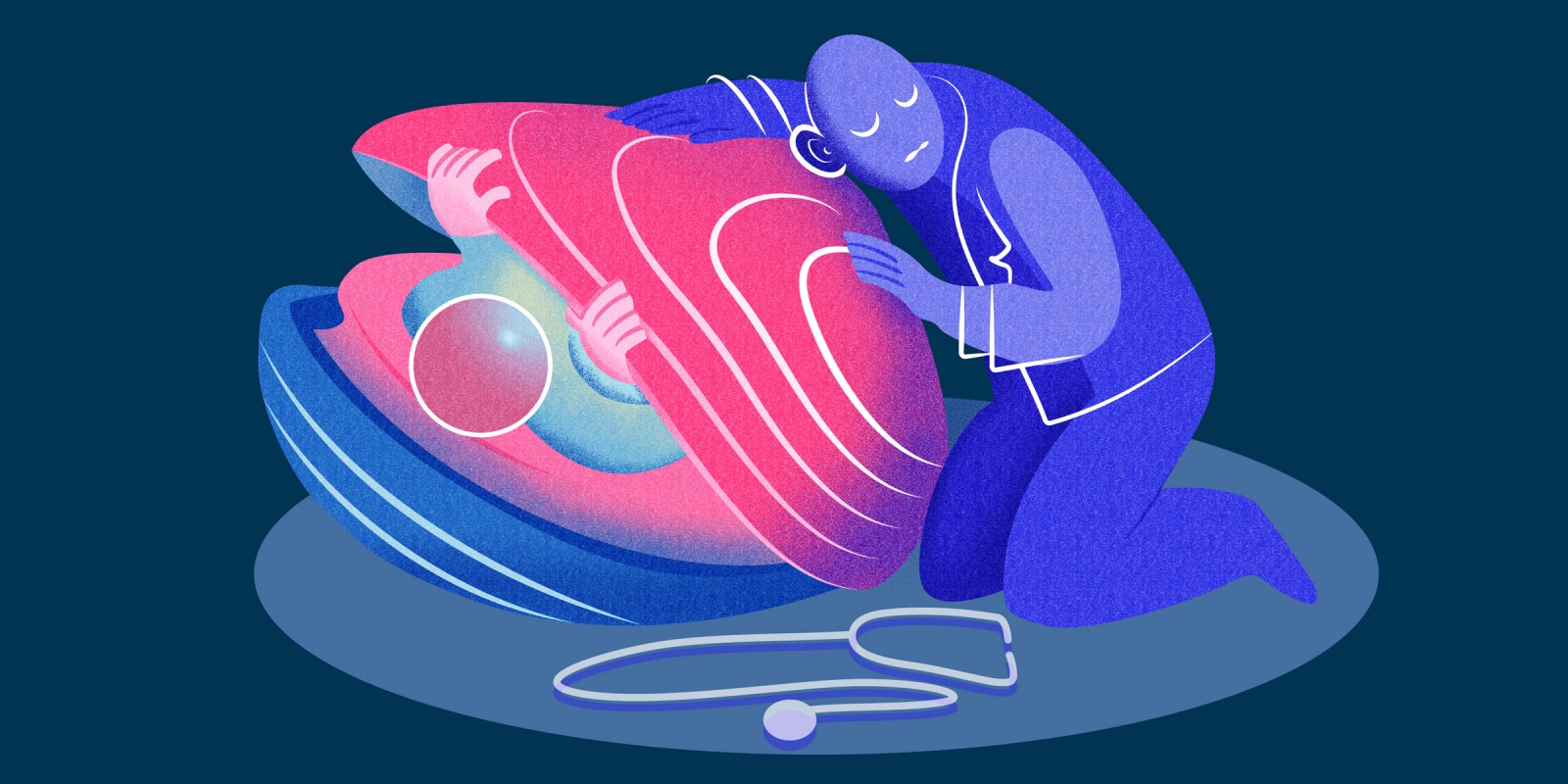Around a year ago, I started medical school. I showed up to our clinical medicine class each week, ready to learn about the art of taking a patient history. As the weeks went on, the work piled up. Life became busy, and I fell into a comfortable routine. I would run through the list of questions, and the phrase “I’m sorry to hear that” quickly became a part of my vernacular whenever I heard the patient mention something distressing. One day after class, I heard one of my classmates confess that their family member was ill, and the student walking next to them followed it up with the same phrase: “Oh, I’m sorry to hear that.” I began to wonder if that phrase still had any meaning, or if it was just the remnant of our good intentions.
As future doctors, the importance of communicating the patient’s story is impressed upon us from the very first day of our training. We're taught the importance of staying humble while learning their story, of connecting with patients as people and demonstrating empathy so that they feel heard by those responsible for their care. However, I also began to realize that as future doctors there was an ever growing number of competing responsibilities on our shoulders. Responsibilities that would only grow with our careers and compete for our attention so much that our capacity to demonstrate genuine empathy to our patients would be somewhat diluted.
A few weeks ago, we were sitting in class and listening to a former ICE detainee detail their time in detention. As their story progressed, the horrors that they experienced were so incredibly painful to listen to, that at a point I stopped listening. It almost felt like an act of self-preservation, that in order to preserve my own capacity to continue functioning for the rest of the day, I couldn’t continue. Walking out of class that day, I was incredibly frustrated.
On the one hand, in order to really connect with patients, we need to utilize empathy and — as much as patients allow us, travel through their pain. On the other hand, committing fully to empathy made me feel like Icarus putting on his wings, like each time I employed it, I was flying too close to the sun and getting burned.
Of course as a student, I only experienced a taste of the load that medical professionals must deal with day in and day out — when a patient dies, or their prognosis worsens, when someone who comes in reminds you of a family member, when you make a mistake, or wish there was something more that could be done. At times, it starts to feel that the empathy we use to connect with patients becomes a double-edged sword, an occupational hazard of the job that both brings us closer to patients but is also capable of burning us out.
I wrestled with this question and didn’t quite know what to make of this new aspect of being a physician that I hadn’t previously appreciated. I didn’t find the answer in my own thoughts, but I did find it where so many other answers are found: in a patient’s room. My patient that day was an older woman, diagnosed with cancer. As I ran through my usual rolodex of questions I found myself hitting a very familiar wall: I had just taken up 20 minutes of this woman’s time for my own education. I would leave the room and move on with my day, but she was stuck with the realities of a life whose end date was closer than she had planned.
For a moment I thought there was nothing I had to offer her in return. I couldn’t treat her, or give her any medications. But I could do what I had been taught, which was to ask questions. So at the end of my “Where did the pain start … How long has it been going on for?” spiel, I said, “If it's OK with you, I’d like to ask: How are you dealing with all of this?”
It was at that moment that I realized what empathy really was and why instead of reading the patient’s chart, we were sitting with them and asking them about the same pieces of information. The patient interview was a two-way street. Empathy wasn’t an appropriately placed “I’m sorry for your loss” or “That must be really difficult.” It was the questions I was asking, which were demonstrating the extent of my understanding about their pain. My understanding of their experience as a human being wasn’t something that could be recapitulated by a patient chart. In some way, seeing the patient’s face break into emotion after I asked that question affirmed to me that understanding was also healing. Being able to understand the human that the illness had taken hold of was its own form of treatment.
And it was this interaction that helped me overcome the doubt I had about the role of empathy. When recognizing its greater utility in not only connecting with patients, but also healing them, one can appreciate that it is supposed to take its toll on us like any worthy pursuit. Perhaps in contextualizing our use of empathy it is best to remember Daedalus' warning to Icarus: not to fly too close to the sun but also not to fly too low to the water or else his wings would disintegrate. One would imagine that our use of empathy, as the proverbial wings that enable us to fly as physicians, would best be employed similarly.
When did you realize empathy's role in medicine? Share in the comments.
Neha Sahota is a first-year medical student at USC Keck. Outside of medicine she loves to read, travel, and try new coffee shops. This piece was inspired by an acceptance speech by journalist Nick Schifrin.
Illustration by April Brust






